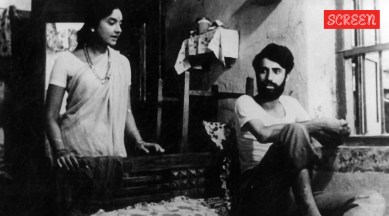Click here to follow Screen Digital on YouTube and stay updated with the latest from the world of cinema.

In a recent interview, director Anurag Kashyap said that he draws inspiration from filmmakers in China and Iran, who continue making movies despite the restrictions imposed upon them. He said that he draws inspiration from the Koreans, who continue to exceed themselves as they grow older. He also cited the example of Awtar Krishan Kaul, a key figure in the Indian parallel cinema movement who isn’t given the importance of his contemporaries, such as Mani Kaul and Mrinal Sen. Awtar Kaul died at the age of 35, with just one film to his name. He was announced as the winner of a National Award mere hours before his family was told that he was no more.
Awtar Kaul was born in 1939 in Srinagar, to a frequently abusive father who kicked him out when he was just a child. A young Awtar worked at a tea stall, and then at a hotel. This is where he began to get three square meals a day. Some years later, he got a job at the Ministry of External Affairs, and was posted to New York, where he learned filmmaking on the side. His nephew, Vinod Kaul, recalled in an interview with The Hindu, “He worked as a copyholder for the Associated Press and when the editor caught him reading Arthur Koestley’s Darkness at Noon, he realised that Awtar was well-read and offered him the job of a news brief writer. Awtar held the job till 1964 before joining The British Information Services in New York.”
In a piece for The Wire, Vinod Kaul recalled his uncle’s early life, and wrote, “Awtar as the eldest sibling in Delhi, bore the brunt of his father’s cruelty. His father, in a fit of rage one day, threw him out of the house, warning him never to return. With no refuge, Awtar was forced to sleep on the Delhi railway platform and eventually started working for a local tea vendor, Bansi Chai Wala to sustain himself… His younger brother recalls those days with the same fear and agony that gripped him then when he looked at his skeletal appearance and hopeless condition. Still nobody in the family could dare to approach their father, intimidated by his wrath.”
In 1970, Awtar returned to India to work on the film Bombay Talkie, by Merchant/Ivory Productions. His sole directorial effort was 27 Down, starring Rakhee and MK Raina. Based on the Hindi novel Athara Sooraj Ke Paudhe, by Ramesh Bakshi, the film follows a railways employee who meets a girl on a train. The film’s music was composed by Hariprasad Chaurasia and Bhubaneshwar Mishra, and the production design was handled by Satyajit Ray’s collaborator Bansi Chandragupta. 27 Down won the National Film Award for Best Feature Film in Hindi.
According to his nephew, “Awtar always kept his family at the centre.” He wrote, “Despite the hardships and harsh treatment in his youth, he remained a compassionate and supportive figure for each family member. Until his last breath, Awtar was an anchor for his extended family, always willing to lend a helping hand.” The family was devastated when they received news of his passing in Mumbai, seemingly of drowning. He had just been announced as a National Award winner some hours earlier. Vinod Kaul wrote in The Wire, “His mother, who had eagerly awaited his return, was devastated by his loss. His youngest brother, who had left his job in the Indian Air Force to help Awtar with his film production, was shattered and suffered from mental trauma and regular fits. Awtar’s younger brother, who had been holding the fort in Delhi while his brothers were away, was also deeply distraught, but he summoned the strength to keep his composure and prevent a complete collapse of the family in the face of this devastating tragedy.”
MK Raina mourned the tragic early passing of the filmmaker. He told The Hindu, “His training in New York, combined with his deep interest in literature, music, theatre, and Indian culture, made Awtar an original voice. When he died, he had three scripts in hand and had he been around he surely would have been an influential filmmaker.”
Click here to follow Screen Digital on YouTube and stay updated with the latest from the world of cinema.